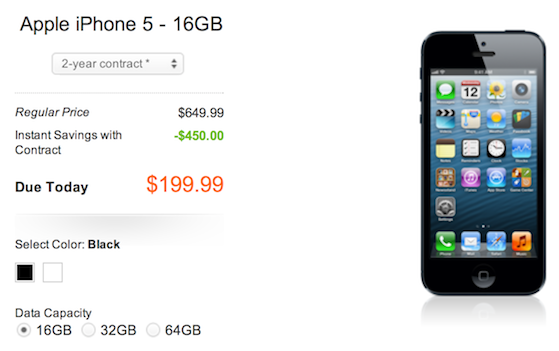Last month, T-Mobile confirmed that it was ending device subsidies ahead of its official iPhone launch. The carrier hopes that customers will buy into the idea, which has them paying full retail prices for mobile devices in exchange for lower monthly fees.
Well apparently, the idea has attracted the attention of the big wigs at Verizon and AT&T. According to a new report, CEO’s from both companies are intrigued by the theory, and will be watching T-Mobile’s experiment closely over the next several months…
The Wall Street Journal reports:
“Last month Deutsche Telekom AG’s DTE.XE +0.65% T-Mobile USA said it would completely stop subsidizing phones in 2013, instead offering plans that essentially allow for interest-free financing.
“That is a great thing,” Verizon Communications Inc. VZ -2.43% Chief Executive Lowell McAdam said in an interview at the Consumer Electronics Show in Las Vegas. He joked that Verizon would support U.S. regulators in banning phone subsidies…
…AT&T T -1.69% Mobility Chief Executive Ralph de la Vega said Monday the company is watching the T-Mobile strategy, and AT&T could make a similar move if it becomes popular, but the company isn’t focused on the issue.”
While both executives say they are very interested in T-Mobile’s new strategy, they also say that they are worried their customers would not take kindly to the major change. Ralph de la Vega even says AT&T’s researched the idea, but isn’t yet comfortable with it.
The move, however, would make sense from the carriers’ perspective, as they typically have to eat hundreds of dollars per handset up front in subsidies, and then hope their subscribers pay their bills. This way, they wouldn’t have to take the risk of fronting the money.
Of course, it would also benefit consumers, who would see substantially lower monthly cell phone bills. But the problem is getting them to pay in upwards of $600 or $700 per handset. And for a family of four getting new phones, that equates to more than $2000.
What’s your take on the whole non-subsidy idea? Would you rather pay a bunch of money for your handset up front and have lower monthly bills, or vice versa?
